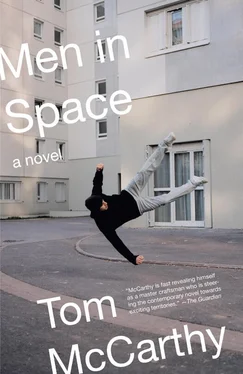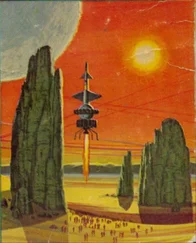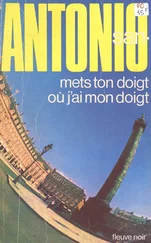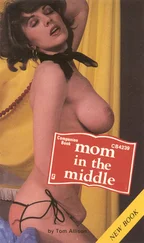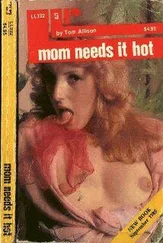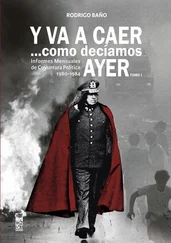He’s about to tap some more speed out onto his hand when a man appears beside him and says hello. Must be a little older than him: mid-to-late thirties. His face reminds Ivan of someone. The man’s smiling at him.
“Do you have the time?” he asks Ivan.
“The time?” He goes through the motions of fumbling in his pockets although he knows he doesn’t have a watch, then looks up at the metronome and gives a disappointed shrug. “I’m afraid not.”
“That’s a shame,” the man says, still smiling strongly as he fixes him with his gaze. Ivan looks back at him and realizes who his face reminds him of: a monk in a monastery where he once spent two weeks restoring a fresco. Brother Fran-something. Francisco? Franz? In the still space of the hilltop, the two weeks Ivan stayed at the monastery jostle for admission. It was a month or so before the revolution: a mild, calm autumn just before that intense winter. Sloping Moravian vineyards, Gypsies harvesting the grapes as he worked in the chapel … those cloisters outside, the way sound echoed round them … dinners with the monks … and Brother Fran … Fran … He promised as he left to get in touch, but never did … The man is staring at him, friendly as anything.
“Are you sure you don’t have time?”
Now Ivan gets it. “No,” embarrassed. “I’m not here for … I’ve got to go.”
He heads down the steps towards the river and crosses Švermův Most: same route he took down from Letná after being released that day in eighty-nine, his day. There’d been swathes of people flowing in the same direction. There are a few people around now, but there’s no purpose to their movements, no coherence. The odd businessman goes one way, the odd street-cleaner another. At Náměstí Republiky he enters the metro. It must be mid-morning now; the carriage is half full. The travellers sit silently, faces washed grey by routine and fatigue: secretaries, workers, eyelids drooping. He starts crashing, dozing off. Pre-recorded messages caress his brain, lullabying him: Finish your entrances and exits; the doors are about to close. Next station Mústek. Morpheus. Maňásek …
He manages to wake up at Anděl, leave the carriage and ride the long, slow escalator to street level. The station’s eponymous plaster angel stands in the lobby, next to a new photo booth. Was there an angel earlier? Folds in a skirt. What was the monk’s name? Fran-something. Ivan steps out onto Nádražní. The sun’s chased the cloud away now. Tram wires, a wedding-dress shop, a langoš stand. He walks down Lidická, past second-hand shops, toy shops, textile and ceramic shops, a butcher’s from whose open door music is spilling. Further down, on the corner of Zborovská, people are queuing by a plastic tank that’s full of carp. Ivan pauses beside them and peers in. There’s a wooden table next to the tank; behind the table, two stout men with moustaches wearing rubber boots and aprons dip nets into the water and scoop fish out, one at a time. They place each fish, flapping, in a weighing scale: if it’s too heavy, or too light, they throw it back and scoop another out — but mostly they’re the right size. Some people want to carry their fish off alive, in bags half-filled with water; most, though, want theirs killed. The men hold the fish across the surface of the table, place a small axe to their neck, then slam a mallet down onto the axe, severing the fish’s heads. It usually takes two or three blows to fully sever them. The fish’s mouths widen and contract as the axe goes through their flesh and tendons, like the mouths of operatic singers or of ancient oracles and seers whispering deathbed visions. When they’re dead, the men gut them, scrape scales from their sides, hand them to the customers, then start the whole process again.
Ivan watches them weigh, kill and clean three or four carp, then turns to leave — but as he does, a truck pulls up beside the tank. The two men in boots and aprons greet the driver, who climbs from his cabin, pulls a slide from the truck’s side and snaps one end of this into a catch below a sluice-gate on the truck. The men in boots and aprons lay the other end across the rim of their tank, then stand back, one on each of the slide’s sides, like ceremonial soldiers waiting for visiting dignitaries to descend from an aeroplane.
“Ready?” the driver shouts.
They nod. The driver pulls a lever; the sluice-gate opens and releases from the truck a rush of water in which scores of carp cascade down the slide towards the tank — on their sides, one eye up, scales flashing silver under a thin film of liquid as they shoot by. After a few seconds the tank’s filled up to the brim; there’s water gushing out onto the pavement. Carp too: the driver’s trying to close the sluice-gate, but the lever’s stuck, got wedged. He’s swearing, jerking at it while carp hurtle down the slide: more and more of them. They’re bouncing off the writhing block of tails and fins and landing on the pavement, thrashing around the kerb gasping for breath, hitting their heads on people’s feet, the wheels of pushchairs … One of them’s come to rest in front of Ivan. Its mouth is working itself open again and again, each time finding it harder, as though struggling against the unbearably heavy atmosphere of some alien planet it’s pitched up on. Its eyes bulge outwards from its head. Ivan shudders, closes his eyes, turns away again and walks home.
Back in his flat, he pulls his shoes off, fetches his shaving mirror and spare razor blade from the bathroom and chops what’s left of the speed into a line. He takes his hundred-crown note out and rolls it up, but then decides to save the line for later and covers the mirror with an upturned cigar box. By the telephone a page, torn from one of his magazines, has had a message scrawled on it: Meet Joost van Straten in MXM any time today until five. And kiss my butt . Van Straten: that’s the Dutch gallerist. He’ll sleep for a couple of hours, then go. He sits back in his armchair and looks around him. Toys have spilt across the floor from the freight carton he plundered yesterday for objects to add to his collage. The collage itself is hanging on the wall above his chair. There’s that old photograph glued to the canvas: his parents sitting on a rug beside the river near Radotín and, behind them, Petr and himself, aged maybe eight. Nineteen sixty-six or — seven. Just before his father’s death. Petr must be four. He has got Hájek’s morose grin. Comes from the time Ivan dropped a big radio onto his head, flattened it like Giacometti’s sculptures of his own brother … his own brother … ask Nick. What was the monk’s name? Ivan looks away from the collage, towards the ceiling. The wooden angel’s hanging there. No aura about her: she’s just a wooden block, hasn’t even got legs — just long, rusty nails snaking out from the wood where her genitalia should be: must’ve been joined to the altar at the hip. She dangles from the bar beneath the skylight, her head slightly twisted to one side and tilted back, her eyes focused on some point beyond, or perhaps within, the skylight’s dirty glass. It’s not up there, whatever she was meant to be looking for — not any more, at least: more likely lying on some stretch of pavement. Everything falls back, eventually …
It must be pushing noon now. Three hours’, four hours’ sleep, then he’ll go over to MXM and see this Joost van Straten. Ivan moves into his bedroom and lies down, staring, like the wooden angel, at the skylight. Just before he drifts off into sleep, the jagged and curved smudges on its surface morph into the half-familiar shapes of a broken metronome, a suffocating fish.
* * * * *
… to be informed, upon reporting back for work shortly after 9 [nine] a.m., that my presence was requested at the National Central Bureau of Interpol. I was informed that I’d require a security card in order to enter the building in which the meeting was to take place, and was issued with one. I was, further, informed that the office of the Interpol NCB had recently been moved, as part of the general overhaul we were experiencing, to the very building which housed my own department and in which I was already, as on most days, standing, but that since the requirement to be issued with security cards when visiting Interpol buildings had not yet been rescinded in the light of this fact, I would need one nonetheless. These facts, these glitches, are not important: what is important is that the austere office of the NCB has called me, that I have been called.
Читать дальше
